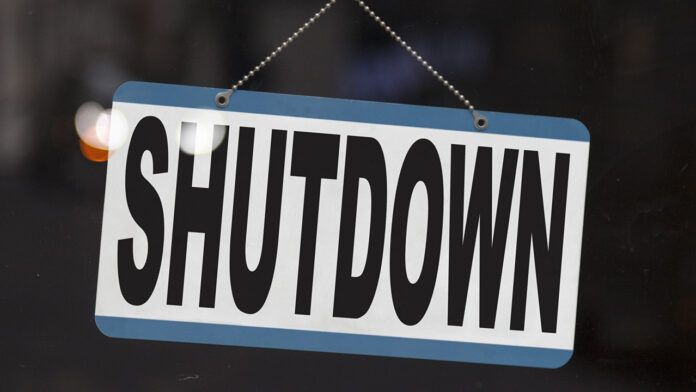
As of the publication of this editorial, it appears that the United States government is headed for a shutdown. That is a mistake that should be avoided, and we hope it hasn’t come to that.
We agree that Washington needs to spend less money and there are several other critical issues that need to be addressed, but playing politics with a government shutdown is not the right approach.
According to various media reports, if the government were to shut down on Oct. 1, which is the start of the fiscal year, some government entities would be exempt. Social Security checks, for example, will still go out, but other functions will be severely curtailed. Federal agencies will stop all actions deemed nonessential, and millions of federal employees, including members of the military, won’t receive paychecks.
We are particularly concerned about the businesses that are closely associated with the federal government, such as federal contractors or tourist services around national parks which could see disruptions and downturns. The travel sector could lose $140 million daily in a shutdown, according to the U.S. Travel Industry Association.
Additionally, with the economy in a weird situation, we are concerned that a shutdown could negatively impact the financial markets. Goldman Sachs has estimated that a shutdown would reduce economic growth by 0.2% every week while it lasted, but growth would then bounce back after the government reopened.
Forcing a government shutdown is not leading. Let’s avoid this at all costs and try to conduct the hard work of compromising to enact legislation that helps — rather than hurts — the economy.
Administration’s overtime pay proposal misses mark
The Joe Biden administration is pulling out all the stops to increase pay for employees to compensate for higher inflation and higher interest rates that are impacting the pocketbooks of Americans.
An August CNN poll revealed that 51% of the American public remains negative about the state of the nation’s economy and that the economy is still in a downturn and getting worse.
To help counter this, a Biden administration proposal would update the Fair Labor Standards Act to expand overtime eligibility to more people, and ensure salary thresholds that determine overtime access will keep up with earnings data.
According to news reports, overtime pay currently applies primarily to hourly workers who log more than 40 hours in one week. However, non-hourly professional workers, including executive, managerial, administrative and professional employees, don’t qualify for the bonus pay unless they earn less than $35,568 a year.
The new proposal raises that threshold so non-hourly professionals can earn overtime if they earn less than $55,068 per year, or $1,059 per week.
The change could have a big impact on low-paid salaried workers in retail, food, hospitality, manufacturing and other industries where managerial employees earn less than $55,068.
The larger issue that gets missed in this proposal is that some small businesses are already struggling to meet payroll. Retail and food service industries, in particular, are still struggling in a post-COVID-19 environment.
Adding more burdensome regulations on these small businesses is not the right thing to do in an economy that is still trying to get its footing.




